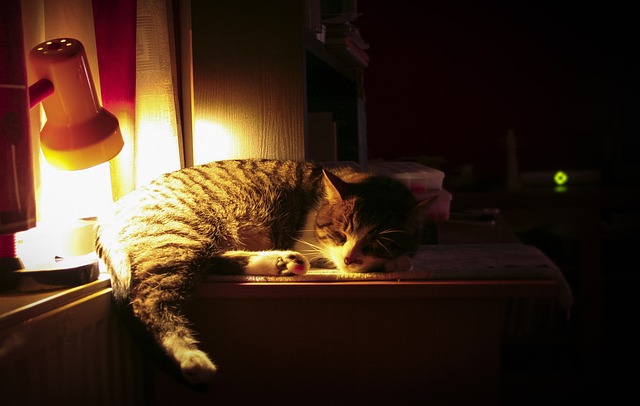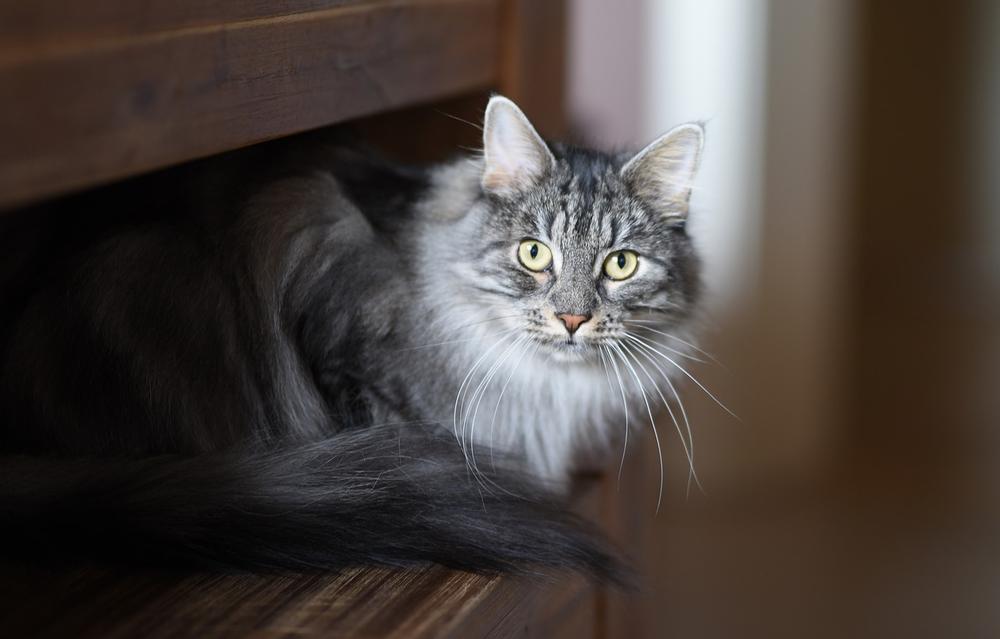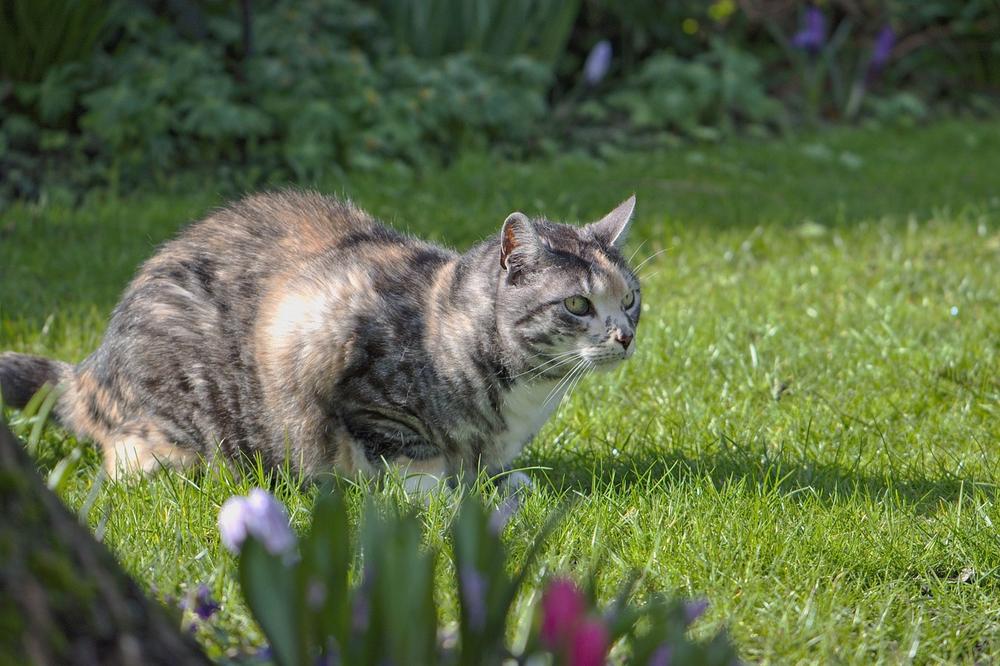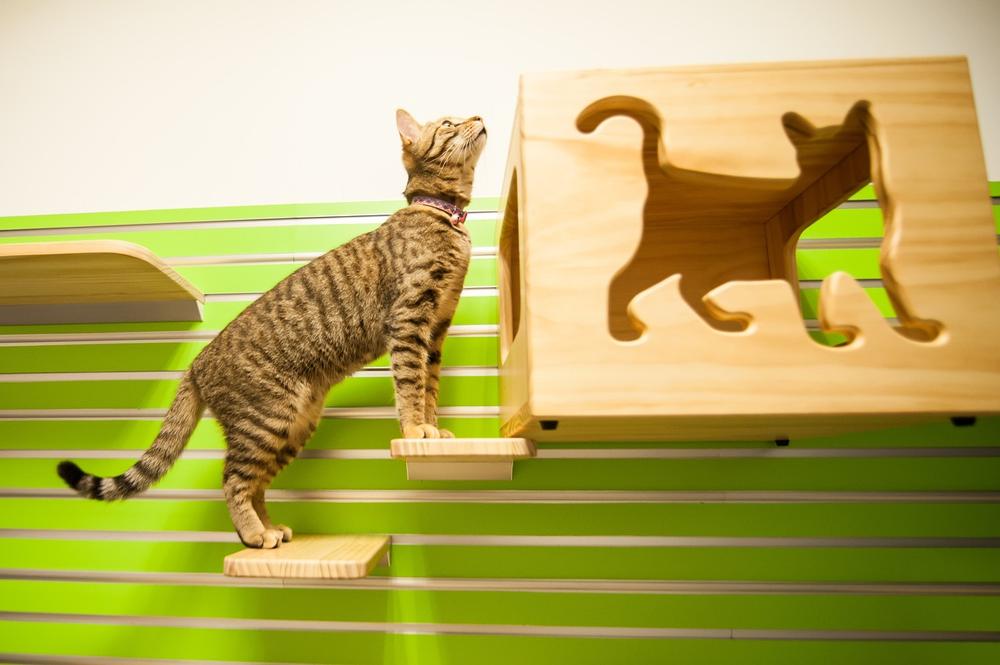Do Cats Pee and Poop at Night?

Imagine this:
It's the dead of night, you're curled up in bed, peacefully dreaming. 😴
But wait, there's a nagging concern at the back of your mind:
Do cats pee and poop at night?
The answer may surprise you.
Stay tuned and let's dig into this mysterious subject.
Nighttime Bathroom Needs: Do Cats Require Access to Litter Box?
Here's how you can take care of your cat's bathroom needs at night:
- Make sure there's always a clean litter box available for them.
- If you're traveling or in a temporary situation, consider using disposable litter boxes.
- Cats are most active during dawn and twilight, so ensure they have access to the litter box at night.
- Kittens can't hold it for long, so let them have constant access to a litter box.
- Older cats and those with bladder control issues also need overnight access to the litter box.
- Keep the litter box in a quiet and easily accessible place for your furry friend. 😺
- Regularly scoop the litter box to keep it clean for your cat.
- To not overwhelm their senses, use unscented litter.
- Litter box liners can be helpful for easy cleanup.
- Pay attention to any changes or concerns in your cat's litter box usage and consult a vet if needed.
Always remember, when it comes to your cat's nighttime bathroom needs, prioritize their comfort and cleanliness.
Now that we've covered the importance of providing your cat with nighttime access to a litter box, let's delve into the fascinating world of their bathroom habits.

You might be curious to know how often cats actually urinate and defecate during the night and what it could signify for their overall well-being.
So, let's uncover these intriguing details and unveil the factors that influence your cat's urinary and fecal patterns.
Trust me, you won't want to miss out on this valuable insight!
Cats' Bathroom Habits: Frequency and Overnight Holding Explained
To understand your cat's bathroom habits better, refer to this comprehensive list:
- Monitor the frequency and consistency of urine and feces.
- Sudden changes signal potential health issues.
- Cats typically do not urinate at night.
- They can hold it in for 1-2 days.
- On average, cats urinate 2-4 times a day.
- Pooping occurs once every 24 hours.
- Male cats require extra monitoring due to urinary blockage risks.
- Excessive urination may indicate medical problems.
- Lack of urination or defecation for more than 48 hours requires veterinary care.
- Litter box usage varies based on lifestyle, age, size, and health.
- Trained cats may hold waste until they have access to a litter box.
- Regular bathroom breaks prevent discomfort and constipation.
- Avoid making cats intentionally hold their urine for extended periods.
- The frequency of pooping depends on their schedule and habits.
- Aim for once or twice daily elimination.
By understanding cats' bathroom habits, you can ensure their well-being and prevent any potential issues.

But addressing litter box aversion is crucial for maintaining cats' well-being - here's how you can alleviate the problem...
Common Issues and Solutions with Cats' Bathroom Habits at Night
Cats' nighttime bathroom habits can be improved by addressing discomfort or stress. Experiment with different litter types and box designs. Keep the litter box clean and consider a self-cleaning option for older cats. Providing easy access, monitoring behavior, and addressing medical concerns are crucial for their well-being.
Addressing any issues your cat may have with using the litter box, especially if it's causing them discomfort or stress at night, is important.
To find the right fit for your cat, you can experiment with different types of litter and alternative litter box designs.
Cats can be fussy, so you have to figure out what they prefer.
Cleanliness is a priority when it comes to their litter box.
Scoop daily and do a full clean at least once a week to keep it tidy.
A dirty litter box might discourage your cat from using it.
If your cat has joint discomfort due to old age, consider getting a self-cleaning automatic litter box to make life easier for both of you.
Having an extra litter box available overnight can be a game-changer for convenience.
Just imagine if you had to trek across the house every time nature called during the night!

Watch out for any behavioral issues that may arise in your cat.
Stress or environmental changes can trigger these problems.
Providing access to a litter box overnight and checking in on them can avoid unwelcome surprises in the morning.
Diarrhea, constipation, frequent urination, or disturbances at night could indicate a medical concern.
Stay vigilant about potential health issues and seek veterinary care if needed.
Above all, prioritize your cat's health. If they have ingested lilies, which are toxic to them, take them to the vet immediately.
Remember these tips to ensure smooth bathroom habits for your cat's well-being and yours.
And what about those unexpected accidents that happen on your favorite blanket? Don't worry, I've got you covered.
When it comes to effectively cleaning cat poop off a blanket, you'll find all the answers in my article: How to Clean Cat Poop Off the Blanket.
Discover the best tips and techniques to ensure a fresh and clean outcome without any stress or mess.
Trust me, you won't want to miss this invaluable guide.
Where to Put Litter Box at Night
Create a special room for your cat at night
If you really want to give your furry friend an amazing nighttime experience, make a designated "cat room".
This is where you put everything your cat needs like their litter box, toys, scratching posts, and cozy spots.
It's like their own little paradise during the dark hours.
Provide enough litter boxes for each cat (and have an extra!)
Cats can be very particular about their bathroom habits.
To avoid any problems or fights, it's best to have at least one litter box for each cat, plus an extra one just in case.
This way, everyone has their own space to do their business without any issues.
Give your cats privacy and keep things indoors
Privacy is important, especially at night, for both humans and cats.

Just like you wouldn't want someone watching you while you're in the bathroom, cats don't want that either!
Place the litter boxes in private spots at night to avoid disturbing sleeping cats or humans.
You have different options for where to put the litter boxes.
You can hide them behind a screen, in a cabinet, in the laundry room, or even in the bathroom. Just ensure it's inside so your cat doesn't accidentally knock it over during their midnight adventures!
But how can you ensure that your cat actually uses the litter box at night?
Well, let me tell you about the usefulness of positive reinforcement training techniques!
How to Encourage Your Cat to Use the Litter Box at Night

To encourage your cat to use the litter box at night, follow these 11 simple steps:
- Use positive reinforcement techniques to reward and praise your cat for using the litter box at night.
- Choose a suitable litter box that addresses factors like odor, location, cleanliness, and the presence of a filter.
- Place the litter box in a quiet area where your cat feels comfortable at night.
- Keep the litter box clean and fresh-smelling, as cats prefer cleanliness.
- Consider using a night light near the litter box to provide visibility during nighttime bathroom trips.
- Establish a routine by consistently directing your cat to the litter box for elimination.
- Avoid sudden changes or disruptions to the litter box area to maintain consistency.
- Offer multiple litter box options throughout your home for convenience.
- Discourage your cat from eliminating outside the litter box by cleaning up accidents promptly and removing the scent.
- Consult with a veterinarian if your cat continues to have litter box issues at night.
- Patience and persistence are key when training your cat to use the litter box at night.
And now, let's dive into an important aspect of creating the right environment for your cat at night - the impact of lighting conditions...
Do Cats Need Light to Use a Litter Box?
The impact of lighting conditions on a cat's comfort and confidence while using the litter box at night is crucial.
Cats, just like you, prefer a well-lit area for their litter box, as it helps them feel secure and prevents any mishaps.
To ensure their peaceful evening routine, consider placing subtle night lights near the litter box.
This provides sufficient illumination without disrupting their sleep. However, bear in mind that sometimes, when there are no other options available, cats may reluctantly resort to using a dark location.
Understanding your feline companion's needs fosters their all in all well-being and leads to a harmonious living environment for both of you.
Solving Cats' Nighttime Bathroom Issues Effectively
Key Takeaways:
- Cats are most active during dawn and twilight and need access to a litter box at night.
- Kittens, elderly cats, and infirm cats need full access to a litter box.
- Cats can hold their urine for 12-24 hours without accidents.
- Adult cats urinate 2-4 times a day and poop once every 24 hours.
- Male cats require consistent monitoring of urination patterns.
- Excessive urination or lack of urination for more than 48 hours may indicate a medical problem.
- Cats' litter box usage depends on lifestyle, age, size, and health condition.
- Regular bathroom breaks are crucial to avoid discomfort and health issues.
- Maintaining a clean litter box is important for cats' well-being.
- Cats may exhibit behavioral issues and stress that can lead to nighttime disturbances or inappropriate elimination.
- Having at least one litter box per cat, with an extra box, is recommended.
- Placing the litter box in a private spot at night is beneficial.
- Consider the type of litter box that encourages your cat to use it.
- Good lighting near the litter box is essential for cats' ease and security.
And that wraps up today's article.
Before you leave, can I ask you something? Did my blog post help you out? If it did, I would greatly appreciate it if you could share it with your loved ones. Feel free to click on any of the social media sharing icons to instantly spread the word. Thank you so much!
Talk soon,
-Sarah Davis